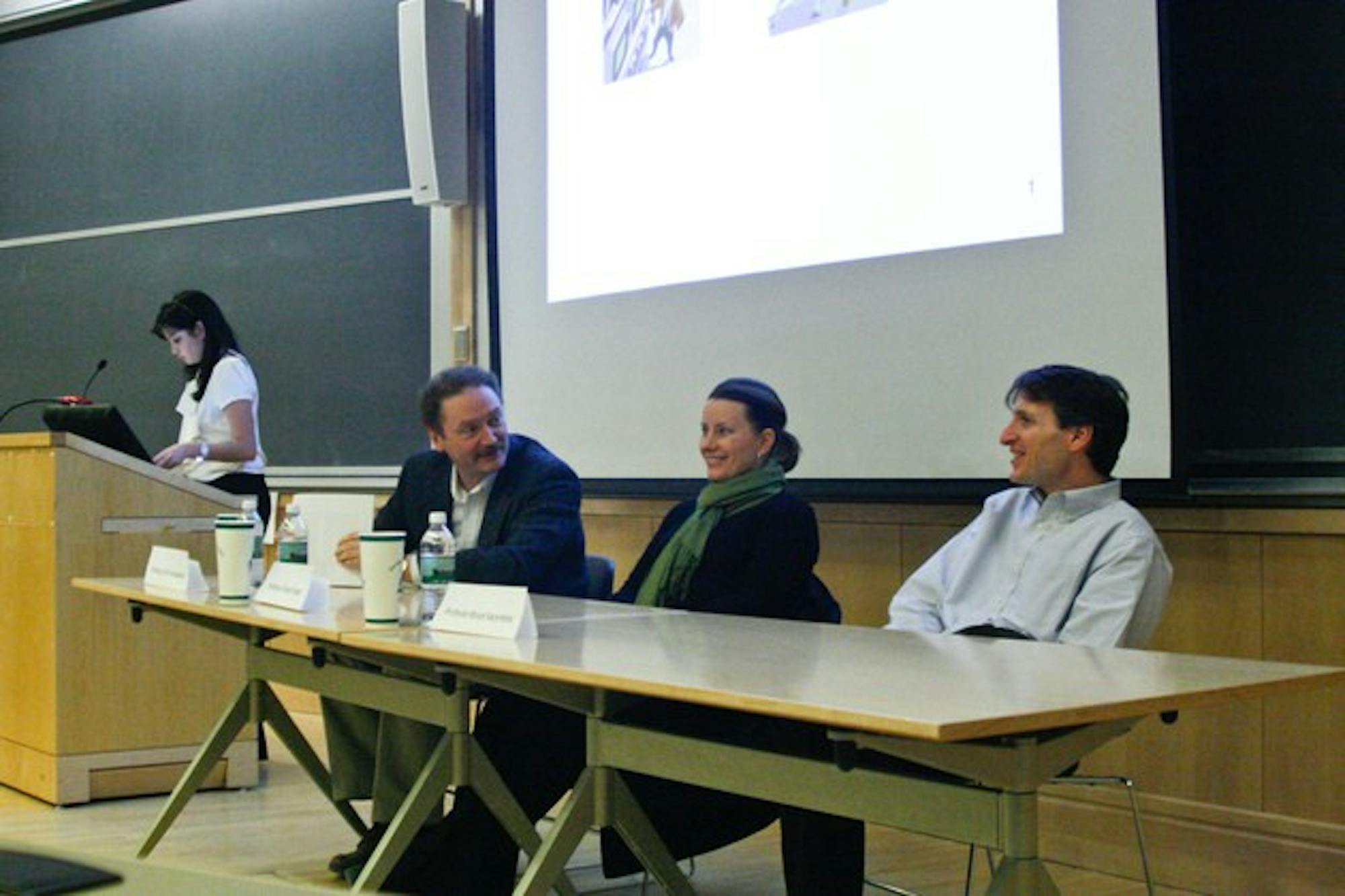Diana Kruger, a visiting professor who specializes in Latin American economics, said she was initially "not too concerned" by the financial crisis because she thought it would be limited to the wealthy nations in which it originated. By the end of 2008, however, loss in consumer confidence in the United States meant lower demand for Latin American imports. As a result, the job markets in those countries have suffered, she said.
"We're already seeing large drops in industrial production and trade," she said. "A lot of this is due to dried-up credit."
Decreased demand for goods and labor may lead to unemployment or lower wages for Latin American workers, Kruger said.
"Neither of these are good news if you're from a poor family," she said.
In addition, remittance flows -- money sent back to Latin America by family members who moved to wealthier countries to find work -- have come "to a halt," Kruger said. These funds are crucial for many families in Latin America, she said.
Because governments in the developing world do not usually provide sufficient financial assistance during times of crisis, families can take drastic measures to deal with income shortfalls, she said.
"Households begin to sell productive assets, pull children out of school and send children to work," she said. "What's worrying a lot of people right now is that another coping mechanism is to reduce caloric intake."
The timing of the current crisis is particularly harmful for developing countries because they are still recovering from last year's world food crisis, Kruger said.
These countries are now "facing [a] grim prospect of recovery," she added.
The recession's effect on the Persian Gulf states is distinct from its effect on emerging economies in the Western hemisphere because the Gulf countries enjoyed a period of enormous prosperity prior to the financial crisis, according to government professor Dirk Vandewalle. Their "exceptional economies" resulted from a surplus of capital, dependence on hydrocarbons for access to world markets, and the heavy presence of immigrant laborers from other countries, he explained.
The Gulf states aspired to become regional economic powers, and perhaps even global economic powers, Vandewalle said.
"When the crisis came, these countries were very badly prepared for it, in part because governments had been telling them there was no end in sight [to their prosperity]," he said.
Prior to the economic collapse, these governments could give many citizens state jobs as a form of patronage. This created an inefficiency that they can no longer support, and countries have begun "questioning the development paradigms that they've used," Vandewalle said.
Short-term economic adjustments will probably aim for greater efficiency and transparency, he said. In the long term, however, governments may not adhere to these changes once the economy recovers.
"When oil prices go back up, a lot of these adjustments that we're seeing now will go away," Vandewalle said.
The recession demonstrates that the "mundane" mistakes of American banks "can affect the output in our country and economic growth and wealth elsewhere," economics department chair Bruce Sacerdote explained.
"People are pointing fingers at us, and correctly so," he said.
The panel was sponsored by the Social Enterprise and Economic Development Society, an undergraduate student organization that aims to reduce poverty in socially beneficial and financially sustainable ways.




